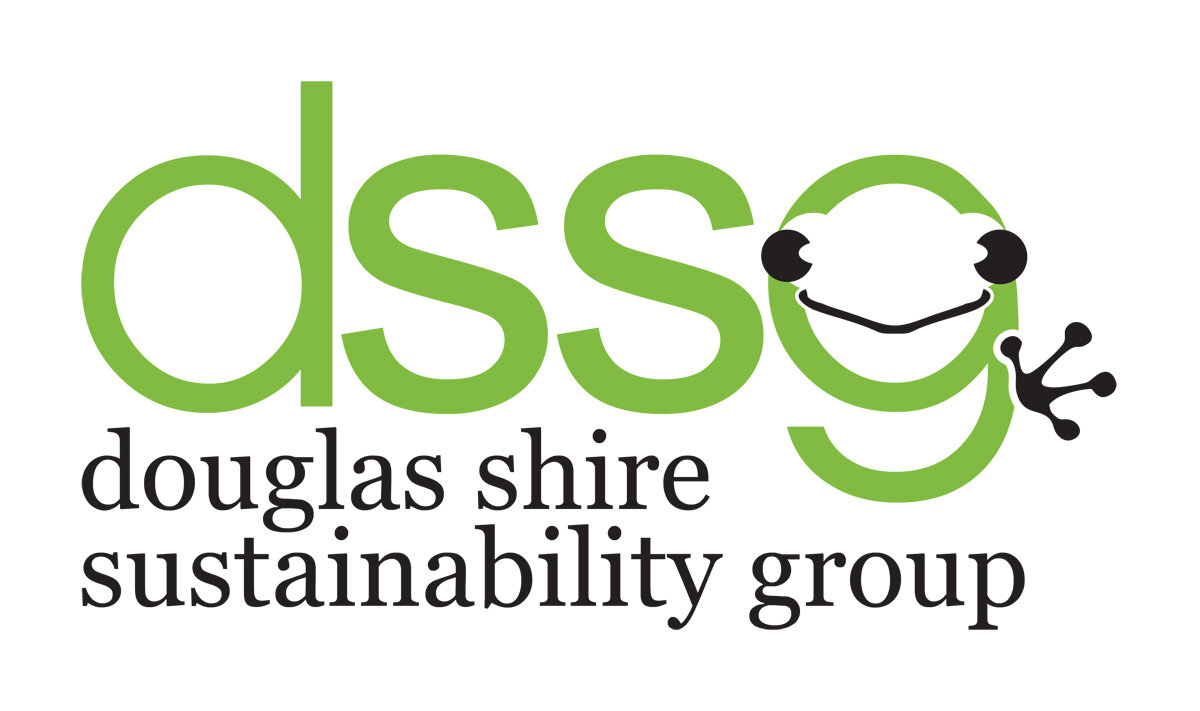Clean water regulations for a healthy reef.
DSSG Comments on discussion paper - ‘Enhancing regulations to ensure clean water for a healthy Great Barrier Reef and a prosperous Queensland
1 May 2017
The Office of the Great Barrier Reef Department of Environment and Heritage Protection
By email:
Dear Madam/Sir
RE: COMMENTS ON DISCUSSION PAPER ‘Enhancing regulations to ensure clean water for a healthy Great Barrier Reef and a prosperous Queensland’
Douglas Shire Sustainability Group (DSSG) is an incorporated association active in Douglas Shire for over 10 years. We are a community-based environmental advocacy group with a significant number of members. DSSG supports the Qld Government proposal to strengthen the regulatory framework to help eradicate the most polluting practices from land-based activities in the Great Barrier Reef Catchment. The discussion paper identifies nutrient and sediment pollution (run-off) from reef catchments as one of the major causes of the poor state of key marine ecosystems, with agricultural production the main contributor. Urban development, sewage treatment works, stormwater, aquaculture and roads are other major contributors. All of these activities can be found in the Douglas Shire, with the main agricultural contributors being sugarcane production and cattle grazing. To date the compliance or otherwise with a Best Management Practice (BMP) program has been a major tool in assessing the performance of producers in reducing run-off. The takeup of the BMP program in the sugarcane sector in particular has been very poor, both in the Douglas Shire and throughout the state. One of the few cane growers in this region who has achieved BMP status has told DSSG that, under the current regulatory arrangements, he believes it will require generational change to see any significant improvement to current industry performance. Similarly statements, either expressed directly to DSSG members or reported in local media, by various industry reps from both sugarcane and cattle sectors in this region reflect a basic ignorance or a blatant rejection of the evidence that their industries need to change their practices if the run-off issue is to be properly addressed. For example, a cattle producer from the Daintree area, who also represents Agforce, has consistently put the position that the removal of riparian growth from waterways and the replacement of trees with pasture is the most effective way of reducing run-off. The rationale for this approach is that ‘pasture is better’ and that grass doesn’t grow under trees! This view has been publicly supported by other Agforce representatives in the local media. Statements of this kind by supposed ‘industry leaders’ do not inspire confidence that we are anywhere near a concensus approach to solving the run-off problem. As a result of our experience with this issue and the lack of meaningful action by industry over time, DSSG supports a strong penalty regime to underpin the Government’s proposed regulatory changes. It has been clearly demonstrated that self-regulation simply has not worked in this environment. Further, it has been shown that when there is no penalty for non-compliance then the majority of operators contributing to the run-off problem will continue to sit on their hands and do nothing. Thank you for the opportunity to comment on this important initiative and we look forward to the implementation of a much more effective regulatory regime to reduce pollution of the Reef.
Yours sincerely,
Didge McDonald
President DSSG

